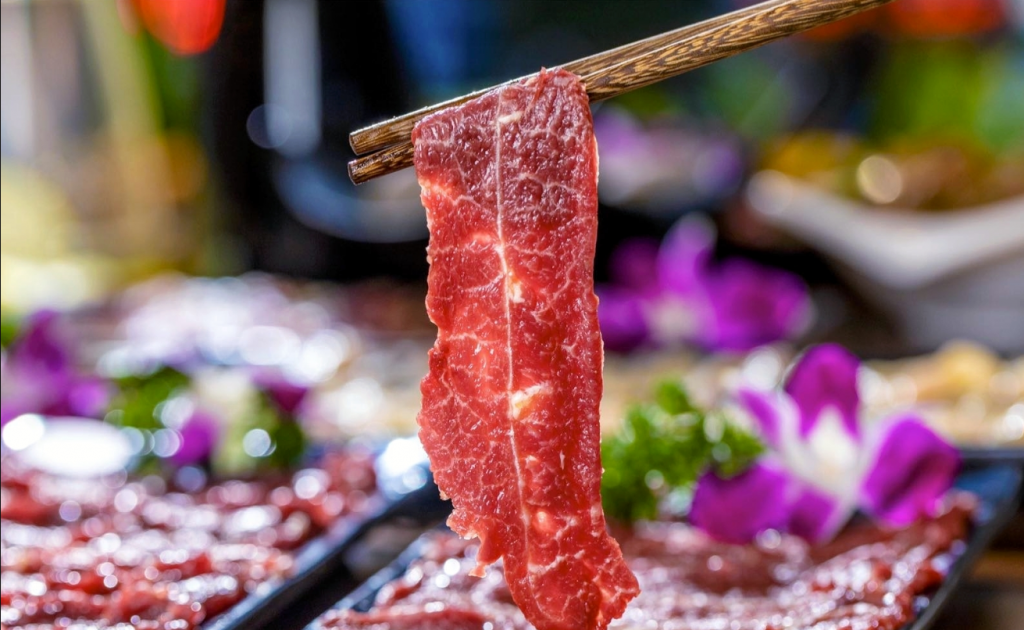In the classic Chinese novel Water Margin (水浒传), the heroic outlaws of Liangshan Marsh are notorious for their love of beef. In fact, beef-eating appears a staggering 48 times throughout the story! One of the most memorable scenes is when the mighty warrior Wu Song visits a tavern at Jingyang Ridge and orders, “Just cooked beef, cut me two or three pounds to go with my wine.” Sounds like a hearty meal fit for a hero, right?
But here’s the twist: Ancient Chinese society wasn’t exactly known for its beef-eating habits. In a primarily agricultural society, cattle were essential for farming and transportation, making them valuable property. Killing a cow for meat was strictly forbidden—so why is it that the characters in Water Margin seem to eat it so often?

Why Couldn’t They Eat Beef?
In ancient China, laws prohibited the slaughter of cattle. The Han Dynasty, for example, equated the killing of a cow to murder, with the death penalty as punishment. The Huainanzi, a classical text, states: “Royal law forbids the slaughter of cattle, and those who break this law shall be executed.” Fast forward to the Tang Dynasty, and while the death penalty for killing cattle was abolished, it still carried a hefty punishment: one and a half years in prison or forced labor.
So, it wasn’t just a matter of personal preference—it was a matter of law. The idea of eating beef was almost unheard of, but in Water Margin, the outlaws seem to make a habit of it.
A Sneaky Way to Enjoy Beef
The beef the Liangshan heroes enjoyed wasn’t fresh, slaughtered beef, but likely came from cows that died of old age, disease, or other accidents. And even then, eating beef wasn’t just something you could do freely. Official permission was required for such meat to be consumed.
Another factor was that the taverns where beef was sold were often located in remote villages and rural areas, beyond the reach of the government’s regulatory control. These “wild taverns” could secretly sell beef without much fear of punishment, giving the heroes an opportunity to indulge in a rare treat.
But there’s a deeper reason why beef became a symbol of rebellion in Water Margin. The characters, known for defying authority, often went against the laws that the government enforced—eating beef was just another act of defiance. In fact, the idea of rebellion against the oppressive government wasn’t even part of the original stories in the Yuan Dynasty’s “zaju” (drama). In the earlier versions, the Liangshan heroes weren’t eating beef at all. But when Shi Nai’an, the author of Water Margin, adapted the tale, he swapped lamb for beef, likely to emphasize the characters’ defiance and rebellious spirit.
In other words, the beef they ate wasn’t just a meal—it was a symbol of their resistance. As the saying goes, “Rebellion is justified, and rebellion goes all the way.” Eating beef was, in a sense, a badge of honor for those who dared to challenge the law.
Black Market Beef and the Quest for Profit
Despite the government’s stringent rules, the demand for beef couldn’t be easily suppressed. In a society where beef was both rare and expensive, those willing to break the law could make significant profits. During the Song Dynasty, a pound of beef could sell for 100 coins—equivalent to about 180 modern-day Chinese yuan. Given the potential for high profits, it’s no surprise that people would take the risk to secretly slaughter cows and sell the meat.
In fact, during the reign of Song Zhenzong, an official named Kong Zongmin reported that in Zhejiang Province, people were illegally slaughtering cattle at such high rates that the government couldn’t even keep up with the number of offenders. The emperor, shocked by this, launched a nationwide crackdown on illegal beef consumption. However, the operation quickly fizzled out because so many people were involved that the jails couldn’t hold them all. In the end, Song Zhenzong gave up—after all, trying to stop people from eating beef was like trying to hold back a flood.
The Beef Tax: A Clever Solution (Sort Of)
In another instance, in Shandong Province, officials, recognizing the widespread consumption of beef, took a more “modern” approach. Instead of cracking down, they simply introduced a tax on beef consumption. If people wanted to eat beef, they could—but they had to pay for the privilege. This move both legalized beef and allowed the government to profit from it. However, this system faced criticism for undermining traditional agricultural values, and it wasn’t long before the policy was repealed.
In the end, despite the government’s best efforts to limit beef consumption, it was nearly impossible to fully suppress the demand for this prized meat. The idea that people were willing to defy the law for a taste of beef underscores how strong the human desire for certain foods can be—especially when those foods are seen as symbols of rebellion and defiance.
The Legacy of Water Margin and Its Relevance Today
So, what can we learn from the Liangshan heroes’ love of beef? In a way, it reflects broader themes of resistance, survival, and human nature. Even in the face of strict laws and regulations, people will always find a way to satisfy their desires, especially when it comes to food. Whether it’s the quest for profit or the simple joy of indulging in something forbidden, Water Margin captures the essence of rebellion—sometimes through something as simple as eating beef.
While eating beef in ancient China may have been illegal, today, beef is a staple in many cultures around the world. The connection between food, rebellion, and identity is still powerful in our modern world. Just as the Liangshan heroes used their meals to symbolize their resistance, we continue to see food as a way to express our values, beliefs, and even our political views.

No comments yet.